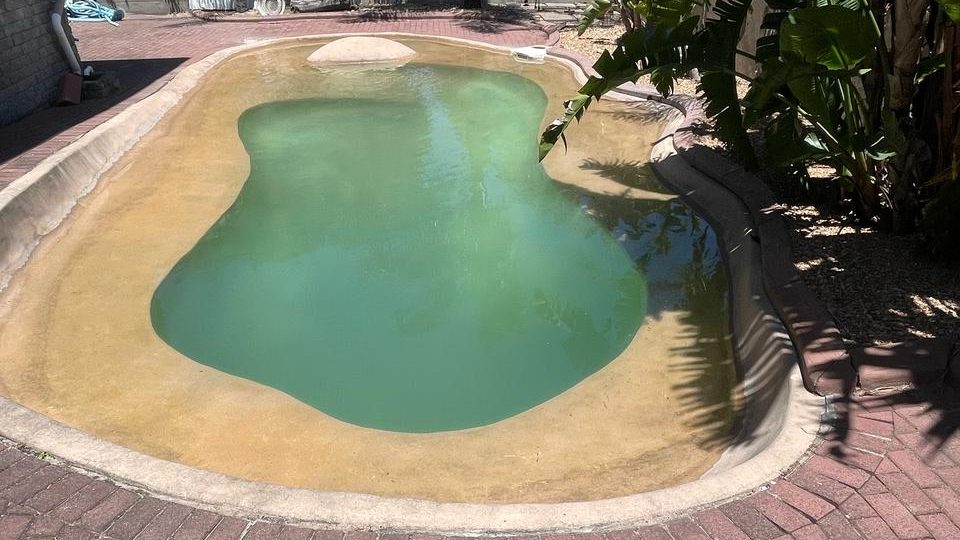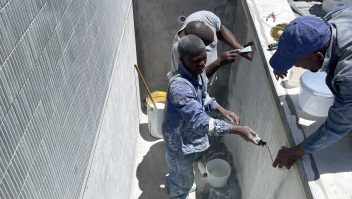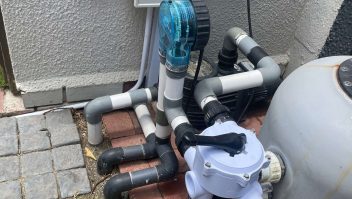Keeping your swimming pool clean in Cape Town’s fluctuating climate can be a challenge—especially when algae take hold. Algae are microscopic plant-like organisms that thrive in warm, untreated, or uncirculated water. If left unchecked, they can stain surfaces, clog filters, and make your pool unsafe for swimming. This comprehensive guide explores the most common types of swimming pool algae, their unique characteristics, causes of infestation, effective prevention strategies, and proven treatment methods, tailored specifically for pools in the Western Cape.
Common Types of Pool Algae
- Green Algae: The most common form found in Cape Town pools, green algae cause murky water and slippery surfaces. It spreads quickly in sunlight and poor water circulation.
- Yellow (Mustard) Algae: This powdery, yellow-brown algae clings to shaded walls and corners. It’s chlorine-resistant and often returns if not treated thoroughly.
- Black Algae: Recognized by dark, stubborn spots on pool surfaces, black algae have strong roots that embed into plaster, making them the hardest to remove.
- Pink Slime (not algae but bacteria): Pink or red slime often forms in still areas like skimmer baskets and return jets and requires different treatment methods.
Causes of Algae Growth in Cape Town Pools
- Poor Filtration or Circulation: Blocked filters or low flow rates create stagnant zones ideal for algae.
- Unbalanced Pool Chemistry: Low chlorine levels, imbalanced pH, and insufficient shock treatments allow algae to thrive.
- Warm Temperatures: Cape Town’s summer heat accelerates algae reproduction, especially without adequate sanitization.
- Organic Contaminants: Leaves, dust, and swimmers’ oils introduce nutrients that feed algae blooms.
- Infrequent Pool Maintenance: Skipping brushing or vacuuming allows spores to settle and root.
Algae Prevention Tips for Cape Town Pool Owners
- Maintain Proper Chlorine Levels: Use stabilised chlorine and test water regularly to ensure effectiveness.
- Shock Your Pool Weekly: Especially during warm months or heavy usage, shock treatments oxidize contaminants before algae can feed.
- Brush & Vacuum Regularly: Brushing walls and floors breaks algae colonies and prevents build-up.
- Backwash & Clean Filters: Clogged or dirty filters can reintroduce algae spores into the pool.
- Monitor Water Balance: Keep pH between 7.2–7.6, alkalinity 80–120 ppm, and cyanuric acid within the recommended range.
Treatment Methods
filters can reintroduce algae spores into the pool
- Green Algae: Apply a strong chlorine shock (superchlorination), scrub all surfaces, and run the filter continuously for 24–48 hours.
- Yellow Algae: Use specialised algaecides and clean every surface thoroughly, including behind lights and ladders.
- Black Algae: Requires brushing with a stiff steel brush and direct application of chlorine or granular shock to the affected areas.
- Pink Slime: Treated with a combination of chlorine shock, algaecides, and full system cleaning.
Professional Algae Removal in Cape Town
For severe infestations, DIY treatments may not be enough. Pools Reno offers professional algae removal services in Cape Town, including water testing, algae-specific treatments, and long-term prevention solutions to keep your pool safe, clean, and inviting.
Frequently Asked Questions
What causes algae in swimming pools in Cape Town?
Warm weather, poor circulation, low chlorine levels, and organic debris such as leaves and dust create ideal conditions for algae growth in pools.
What is the most common pool algae in Cape Town?
Green algae is the most common type found in Cape Town swimming pools due to the region’s warm temperatures and sunlight exposure.
How do I remove black algae from my pool?
Black algae must be scrubbed aggressively with a steel brush, then treated with a direct application of chlorine shock or granular chlorine.
Can pool algae be prevented?
Yes, with proper chlorine levels, weekly pool shock, routine brushing, and clean filtration systems, you can significantly reduce the risk of algae blooms.
Is pink slime actually algae?
No, pink slime is a bacterial growth, not true algae. It requires specific treatment with algaecides and full system cleaning.
Should I hire a professional to treat algae in my pool?
Yes, especially for persistent yellow or black algae, professional services ensure complete removal and prevent future outbreaks with tailored chemical treatments and maintenance plans.




